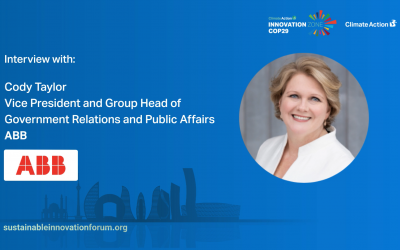“Climate change will cost the financial sector billions” - Mindy Lubber from Ceres
Climate Action recently caught up with Mindy Lubber, the President and CEO of Boston-based Ceres.

Climate Action’s editor, Adam Wentworth, recently caught up with Mindy Lubber, the President and CEO of Ceres.
The non-profit was founded in 1989 to engage investors and businesses in driving forward a global green economy.
When did you first start getting involved in climate change and sustainability issues?
40 years ago I started a recycling program in high school. I just thought it seemed wrong that everything we used was being thrown away.
My first job out of college was then in environmental advocacy. This eventually led to working at the Environmental Protection Agency during the Clinton administration and setting up my own sustainable investment fund, called Green Century.
The overarching tie-in of my life’s work has been to build a future which was clean and has enough resources for generations to come.
Is the US moving fast enough towards a low-carbon economy?
We have seen a lot of movement in the right direction. There has been a reduction in overall emissions, led by coal plants shutting down, and the extraordinary rise in renewables.
However, it is not at the scope and scale to meet the goals of the Paris climate agreement. We need a policy framework where all polluters are on a level playing field. And we need a price on carbon.
Ceres recently co-hosted the Investor Summit on Climate Risk. What are the main challenges facing the financial sector when it comes to ESG concerns?
10 years ago, when we were having this discussion, we were told that ESG wasn’t the way that finance works.
Since then I think we have won that argument. Climate change will cost the sector billions and impact all areas of the economy. ESG issues are financial issues, but firms are still only taking small steps and it is still the exception.
We have to keep pushing though. We can get there when demand increases and returns are equally as good in ESG as elsewhere.
The “We Are Still In” initiative has so far united over 2,800 organisations around the Paris Agreement. What are some of the reasons for its early success?
It was the immediate and strong response from all sections of society. The feeling was that Paris is the most important way to address this problem. The initiative was an adamant affirmation from those cities, states, businesses, and Mayors that we will do what we can on our own.
Mindy Lubber is speaking at Climate Action's upcoming Sustainable Investment Forum in New York City on 26th September.






